Ziad Takieddine's network of social contacts spreads well beyond the political sphere. As illustrated in the exclusive photos published here, his table guests include senior civil servants, industrialists and media stars.
The photos were taken during a dinner reception on June 20th, 2002, at Takieddine's 600 square-metre Paris town house, complete with garden on, the avenue Georges-Mandel in the plush 16th arrondissement of Paris. (As Mediapart revealed earlier this month, the arms dealer pays no wealth tax in France, despite being fiscally domiciled in the country).
Among those featured in the photographs from that evening is Etienne Mougeotte, current editorial director of French daily Le Figaro and who was at the time vice-chairman of TV channel TF1. There were also Claire Chazal, the star anchorwoman of TF1's primetime evening news programme, Charles Villeneuve, a former TF1current affairs journalist, and TV programme presenter Carole Rousseau.
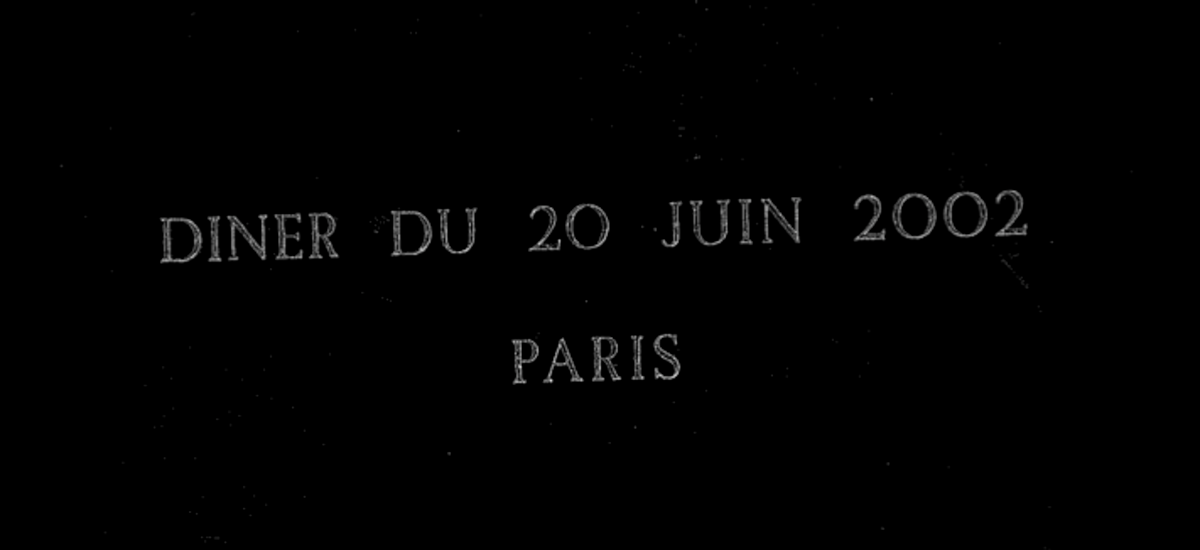
Enlargement : Illustration 1

The dinner party was held just four days after the victory of France's conservative right in legislative elections which had followed Jacques Chirac's re-election to a second term of office as president. Importantly, it was after these elections that the political allies of Chirac's arch rival on the conservative right, Edouard Balladur - and who notably included Nicolas Sarkozy - were allowed back into government by Chirac.
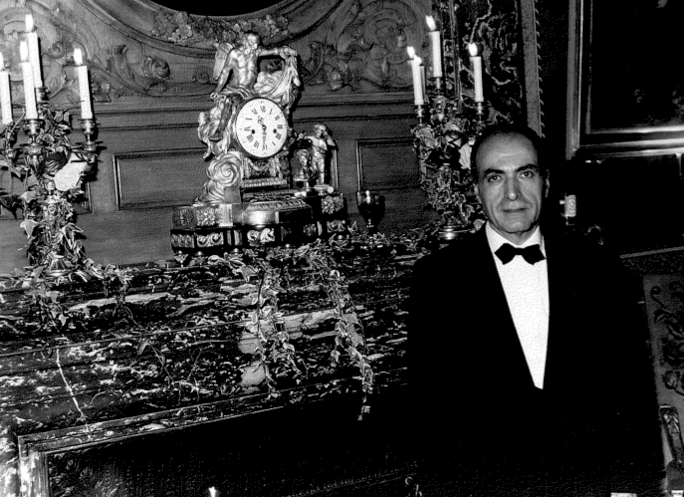
Enlargement : Illustration 2

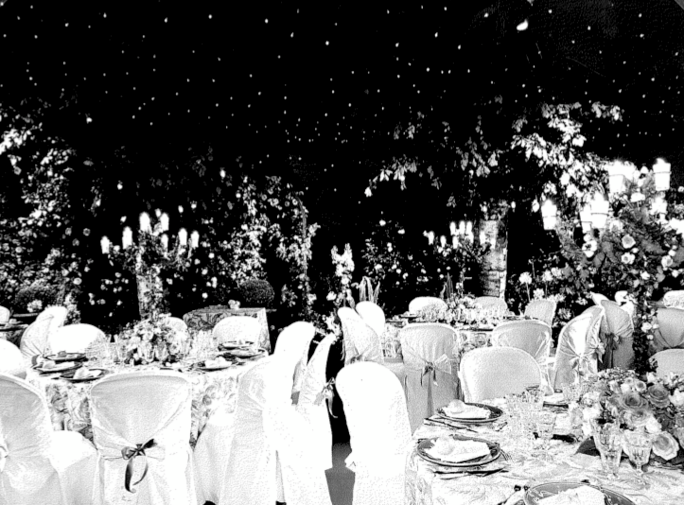
Enlargement : Illustration 3

The bitter feud between the Chirac and Balladur camps that had begun seven years earlier is a key element in understanding the events presented in this series of articles. Chirac was then the mainstream right's designated candidate for the 1995 presidential elections, while Balladur, a fellow member of Chirac's RPR party, was then prime minister. Just months before the elections, Balladur announced he would be running as a rival conservative right candidate to Chirac, deeply riled by what he saw as an act of political treason. Nicolas Sarkozy, Balladur's budget minister, became Balladur's campaign spokesman.
Despite opinion poll forecasts that Balladur would win the contest, it was Chirac who comfortably won. After the ensuing victory of the conservative and centre right in legislative elections that same year, Chirac, furious at the betrayal of Balladur, eclipsed his followers from government.
After Jacques Chirac's election to a second term as president in May 2002, and following the defeat of the Socialist Party in the June legislative elections, Nicolas Sarkozy was appointed interior minister. However, he remained a clear, and later outspoken, rival for Chirac, whom he replaced as figurehead of the conservative right UMP party, into which the RPR had merged, and ultimately as president.
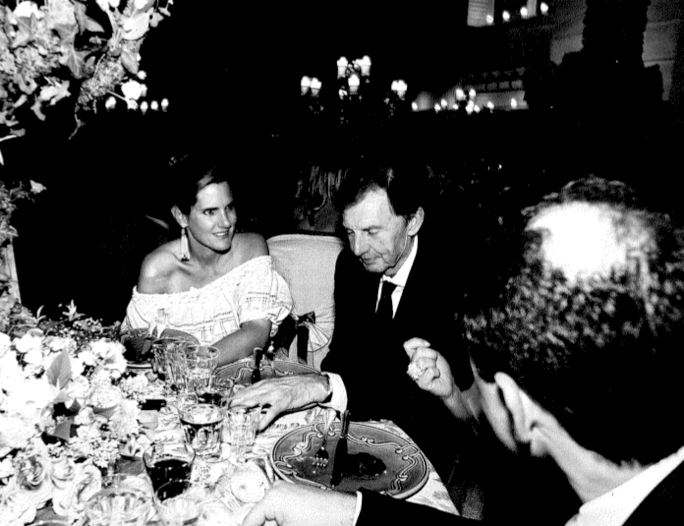
Enlargement : Illustration 4

At the Takieddine-hosted dinner that evening of June 20th 2002, Etienne Mougeotte was placed at the table of Jean-François Copé, the newly-appointed government spokesman. Copé is now secretary-general of Sarkozy's ruling UMP party.
At the same table was Renaud Donnedieu de Vabres, who would later become culture minister and who had just left Chirac's interim government (May-June 2002) in which he served as European affairs minister. Donnedieu de Vabres was a former special advisor to another leading figure of the Balladur camp, François Léotard, when he served as defence minister in Balladur's government between 1993 and 1995.
The actions of Léotard and others close to Balladur have come under scrutiny by Paris-based examining magistrates Renaud Van Ruymbeke and Roger Le Loire, in their enquiry opened in 2010 into suspected illegal kickback payments for political party funding from the 1994 sale of three French Agosta class submarines to Pakistan.
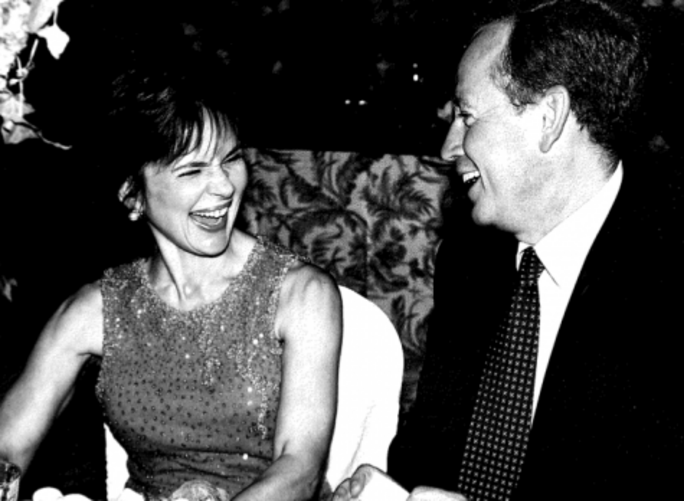
Several witnesses from the French arms industry questioned under oath about the sale have suggested that Donnedieu de Vabres imposed Takieddine and his associate, Abdul Rahman El-Assir, as intermediaries in the Agosta contract during the summer of 1994, just months before it was signed. The magistrates are notably investigating whether some of the significant sums officially destined as commissions - or bribes - to Pakistani officials ended up returning illegally to France, in what are called retro-commissions, to fund Balladur's political movement and unsuccessful 1995 presidential election campaign when he ran against Chirac. Balladur and Sarkozy, and Takieddine, have denied any involvement in, or knowledge of, illegal political funding.
The payment of commissions and the suspicion that they may have included illegal kickbacks are key elements in what has become known as ‘the Karachi affair', so-called after the 2002 murders of 11 French naval engineers who were helping build one of the three Agosta submarines in the Pakistani port city. Their deaths, in a bomb attack on their mini-bus, are the subject of a separate ongoing judicial investigation. The credited lead in that enquiry is that the engineers were the victims of a revenge attack for the non-payment of commissions surrounding the deal, halted immediately after Balladur's rival Chirac beat him to the presidency in 1995. It is suspected that Chirac's decision to cut off the retro-commissions allegedly destined for Balladur's activities also involved the halting of payments promised to local officials. (For more on this far-reaching affair, see our Q&A guide here and a video presentation here).
Rising stars of politics and the media...
Contacted by Mediapart and questioned about the June 2002 dinner, Le Figaro's editorial director Etienne Mougeotte criticized what he said was "a very police-like approach" from Mediapart. He did not have a "specific" recollection of the dinner. "I must have dined two or three times at Monsieur Ziad's," he said. "I don't remember how I met him."
Questioned by Mediapart about the limited coverage of the Karachi affair by Le Figaro, Mougeotte denied any conflict of interest or deontological problems. "The coverage of Karachi is completely normal, the most objective possible," he said, referring to his paper's reporting of the case. "You can keep your lessons for yourself," he added.
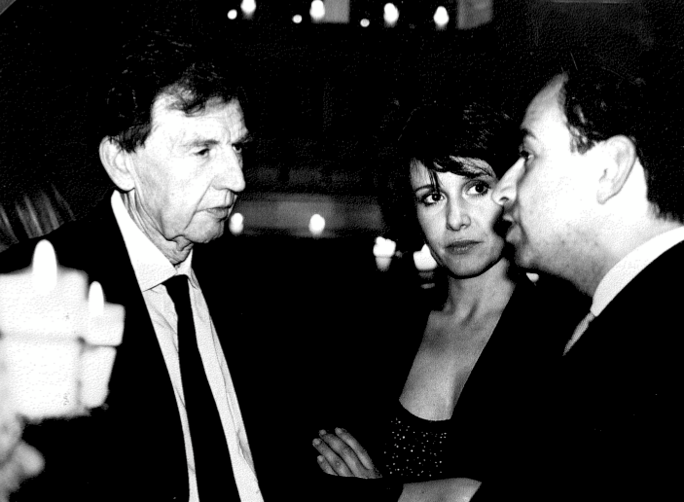
Enlargement : Illustration 6

Also present at the dinner was Charles Villeneuve, then the presenter and producer of TF1's investigative current affairs programme le Droit de savoir. Villeneuve, who later left the television channel to become chairman of Paris Saint-Germain football club, had known Takieddine for some years. In an interview last year with Mediapart journalists preparing a book on the Karachi affair, Villeneuve commented: "Ziad, I saw him mostly during the 1980s". Another guest at the dinner was the now popular TV presenter Carole Rousseau (see above photo), who at the time was a production assistant for Villeneuve's Droit de savoir programme. Contacted by Mediapart, she said she had no relationship with Takieddine and had "followed some friends" to the party.
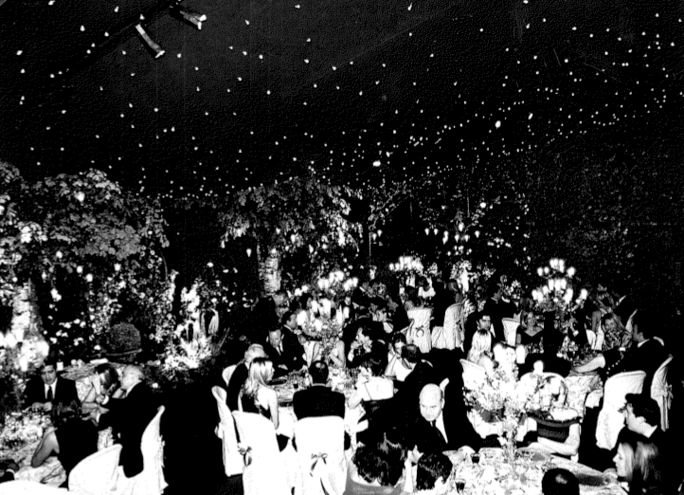
Enlargement : Illustration 7

Alongside the media stars present that evening, several ranking political figures also enjoyed their place amid the arms dealer's close social circle.

Enlargement : Illustration 8

As already mentioned, among them was the then-government spokesman Jean-François Copé, who went on to become budget minister and who is now the head of France's ruling conservative right UMP party. As revealed in Mediapart's earlier investigations into Takieddine's relationship with members of President Sarkozy's close entourage, Copé was one who was hosted for his holidays by the arms dealer (see here and here). Mediapart has also revealed the existence of a credit note document belonging to Takieddine which records a sum of 19,000 euros paid to "the Copé family" in relation to travel costs.
Contacted by Mediapart on the subject of his relations with the arms dealer, Copé has said that he had been "invited" as a holiday guest of Takieddine on several occasions, as part of "strictly amicable relations" that were "without any link" with his "elective or ministerial activities". Copé served as government spokesman between 2002 and 2007, as Secretary of State for Relations with Parliament between May 2002 and March 2004, as a junior minister with the interior ministry between March and November 2004 and as budget minister between 2005 and 2007.
...the business world and the civil service
Other political figures present at Takieddine's June 2002 dinner party included Brice Hortefeux, a veteran political ally of Sarkozy's, after whose election as president Hortefeux became successively immigration minister, labour minister and interior minister. Mediapart revealed earlier this month how Horetefeux, who currently serves as an advisor to the French president, was also hosted with his wife on holidays in Takieddine's villa on the French Riviera, along with Copé.
Photographed during the party was the late Philippe Séguin, a leading Gaullist who split with Chirac in 1999, and who became president of the Court of Accounts, the French national audit office, from 2004 until his death in 2010.

Enlargement : Illustration 9
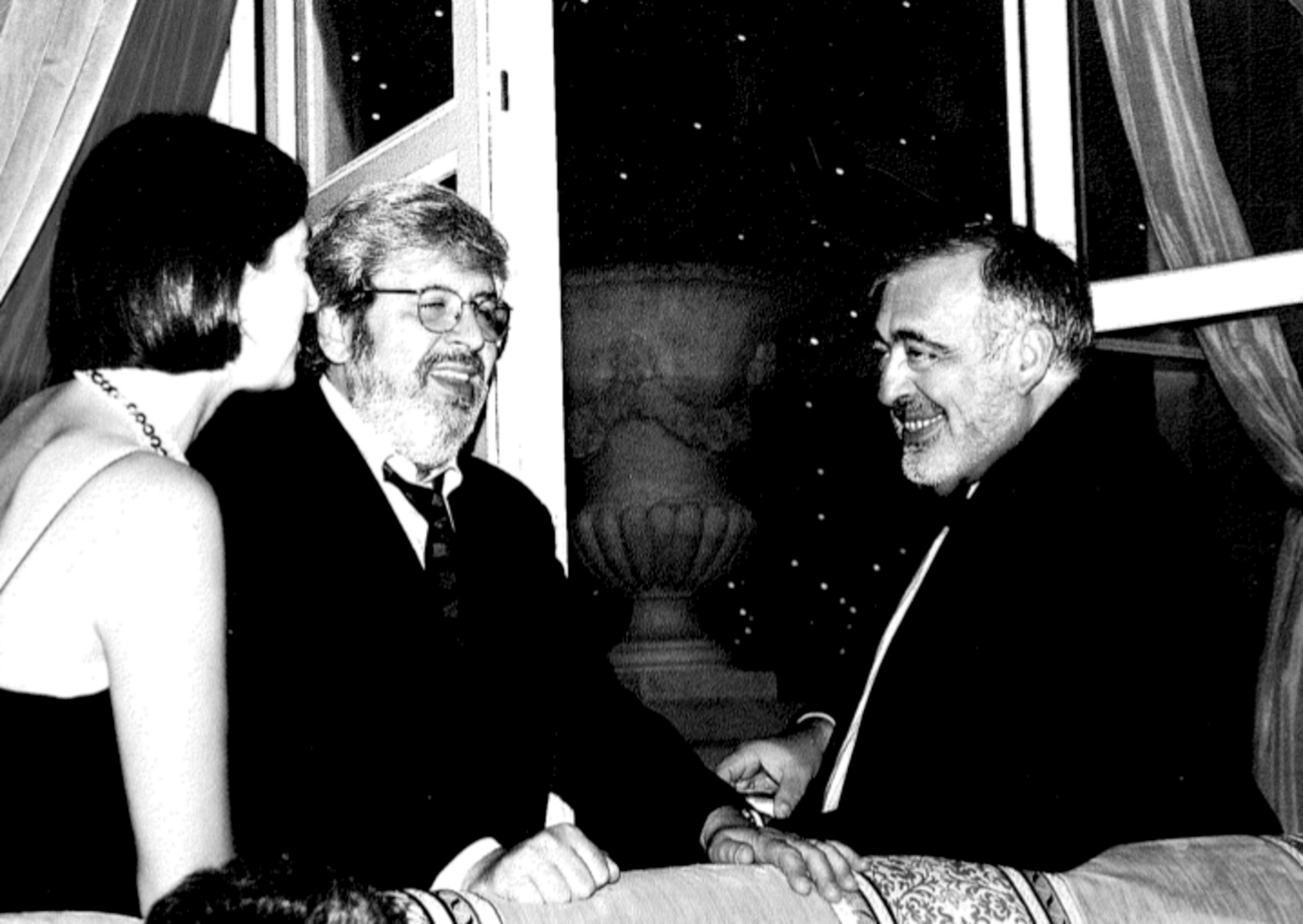
Thierry Gaubert, a former and longstanding close aide to Nicolas Sarkozy, beginning when the latter was mayor of Neuilly, a suburban town just west of Paris, was also present. Gaubert later became a leading member of Sarkozy's staff when the current French president was Balladur's budget minister between 1993 and 1995.
Earlier this month, the French police force's National Division of Financial Investigations (DNIF) carried out a search of Gaubert's offices and home as part of the ongoing investigations, referred to earlier in this article, by examining magistrates Van Ruymbeke and Le Loire into the suspected illegal kickback payments from the 1994 Agosta submarine sale to Pakistan.
Contacted by Mediapart, Gaubert said of his presence at the Takieddine dinner that he "remembers that evening, no more than that", adding: "I was certainly there with my wife." Questioned about a document obtained by Mediapart which records a payment of 2,000 euros made to him by Takieddine on July 6th 2006, Gaubert replied: "That does not remind me of anything. I don't know what that refers to. I don't know at all."
Also on the list of guests to Takieddine's dinner party was property developer Philippe Smadja, a previous professional acquaintance of Gaubert's. In 2010, Smadja was sentenced to four years in prison for "receiving the proceeds of the misuse of company property" and another offence relating to conflict of interest.
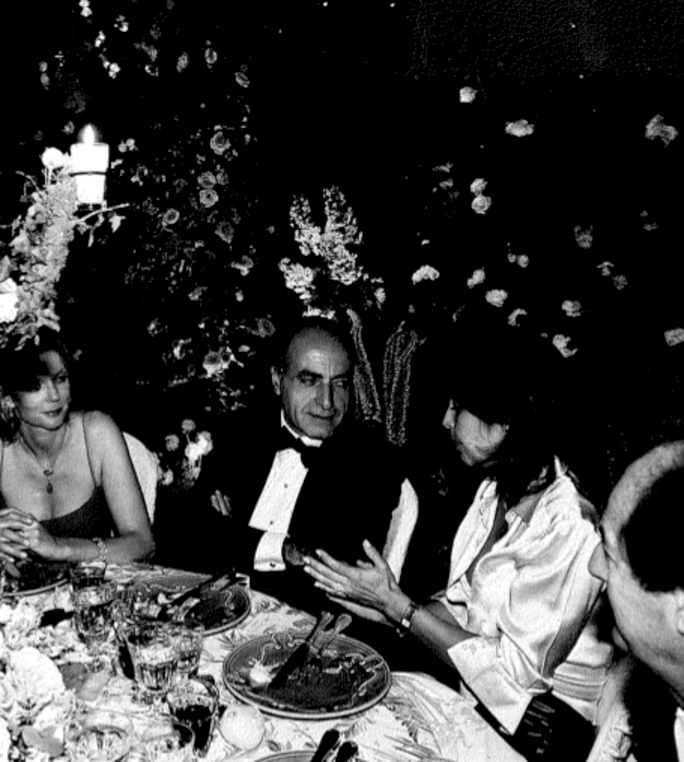
From the business world, the guest list included Thierry Dassault, grandson of Marcel Dassault, founder of the aircraft manufacturing group, and whose father Serge, as head of the Dassault Group, is the proprietor of French daily Le Figaro. Reputed as a specialist in the field of economic intelligence, Thierry Dassault headed the ‘multimedia' branch of the family empire.
Finally, two senior civil servants were also present. One was former presidential diplomatic advisor, François Delattre, who had just been appointed as a senior aide to the new foreign minister, Dominique de Villepin. He later became, successively, French consul in New York, French ambassador to Canada, and finally, France's ambassador to the United States.
The other was Pierre-Mathieu Duhamel, a former finance director for Paris City Hall when Jacques Chirac was mayor of the capital, and who served between 1995 and 1996 as principal private secretary to then-Prime Minister Alain Juppé before becoming head of the French customs services. After serving a period in the private sector, Duhamel was appointed budget director at the French finance ministry in December 2002. He was unavailable for comment before this article was published.
-------------------------
English version: Graham Tearse


